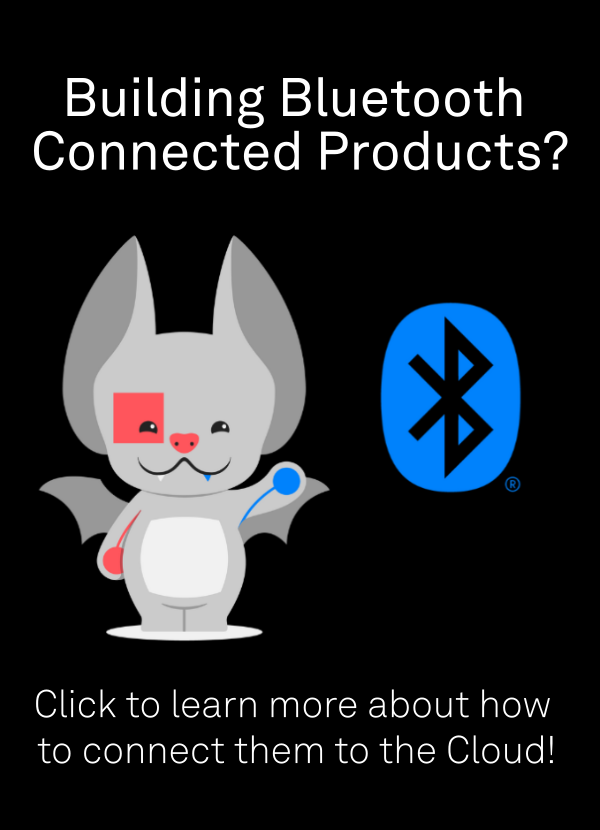The Golioth Zephyr SDK has a new name, a new recommended install method, and a new recommended install directory name.
If you installed our SDK prior to May 2022, now is a great time to make one change to your manifest file and pull the newest version. We’ll walk you through that in the next section, but first let’s discuss what changed, and why we’re excited about it!
Last week we changed the name of our SDK from zephyr-sdk to golioth-zephyr-sdkto make it clear this code is for using Golioth device management features with Zephyr. We also updated our recommended install directory names to golioth-zephyr-workspace and golioth-ncs-workspace.
This second change differentiates the “vanilla” version of Zephyr from the specialized “nRF Connect SDK” (NCS) version of Zephyr that Nordic Semiconductor maintains for chips like the nRF52 and the nRF9160. It also prepares the way for Golioth to expand our platform support beyond Zephyr, which is extremely exciting for us.
For new installs, our getting started guide for ESP32 or for nRF9160 have already been updated and you won’t notice the difference. For existing installs, read on for simple steps to keep your local copy in sync with this new development.
Existing Golioth Zephyr SDK installs: How to update
A small manual update needs to be made to any Golioth SDK that was installed prior to May of 2022. If you previously followed our getting started docs, you have a folder called ~/zephyrproject for the Zephyr version of our SDK, or ~/zephyr-nrf for the NCS (nRF Connect SDK) version of our SDK.
Begin in that directory:
1. Edit the .west/config file
If you have the Golioth Zephyr SDK installed, change the manifest section of ~/zephyrproject/.west/config to match the following:
[sourcecode]
[manifest]
path = modules/lib/golioth
file = west-zephyr.yml
[/sourcecode]
If you have the NCS version of the Golioth Zephyr SDK installed, change the manifest section of ~/zephyr-nrf/.west/config to match the follow:
[sourcecode]
[manifest]
path = modules/lib/golioth
file = west-ncs.yml
[/sourcecode]
2. Update your Golioth remote, then pull and update the SDK
[sourcecode]
cd modules/lib/golioth
git checkout main
git remote set-url origin https://github.com/golioth/golioth-zephyr-sdk.git
git pull
west update
[/sourcecode]
That’s it, your SDK is now up to date!
What changed for new installs: west init option and directory names
The install instructions for the Golioth SDK are very similar to what they were before this change. The most obvious difference is that we’ve moved away from using west.yml as the manifest file and instead use west-zephyr.yml for vanilla Zephyr, or west-ncs.yml for the Nordic “flavor” of Zephyr. When calling west init, we use a flag to chose one of these manifest files:
[sourcecode lang=”bash”]
#Installing the Golioth Zephyr SDK:
west init -m https://github.com/golioth/golioth-zephyr-sdk.git –mf west-zephyr.yml ~/golioth-zephyr-workspace
cd golioth-zephyr-workspace
west update
#Installing the Golioth NCS SDK:
west init -m https://github.com/golioth/golioth-zephyr-sdk.git –mf west-ncs.yml ~/golioth-ncs-workspace
cd golioth-ncs-workspace
west update
[/sourcecode]
This makes the installation process, and the update process for both approaches the same which it wasn’t before.
The old install directory (zephyrproject and zephry-nrf) have been updated to golioth-zephyr-workspace and golioth-ncs-workspace. This change does two things to better describe the contents of these directories. First, they are much more specific about the intended purpose of the folder contents. Second, calling these directories a workspace helps with understanding that you will find multiple repositories inside of each directory (the Golioth SDK, the Zephyr Project RTOS, and the nRF Connect SDK will also be there for NCS installs).
Golioth is a Rolling Stone
We are constantly improving how Golioth empowers you to manage your IoT infrastructure. These changes to the Golioth Zephyr SDK deliver a better workflow, and prepare Golioth to add SDKs for additional platforms in the future. We are dedicated to updating our users about changes that might impact their setup and tooling. If you have any questions on these changes, or want help getting up to speed with our tools, we’d love to hear from you on the Golioth Discord server!

